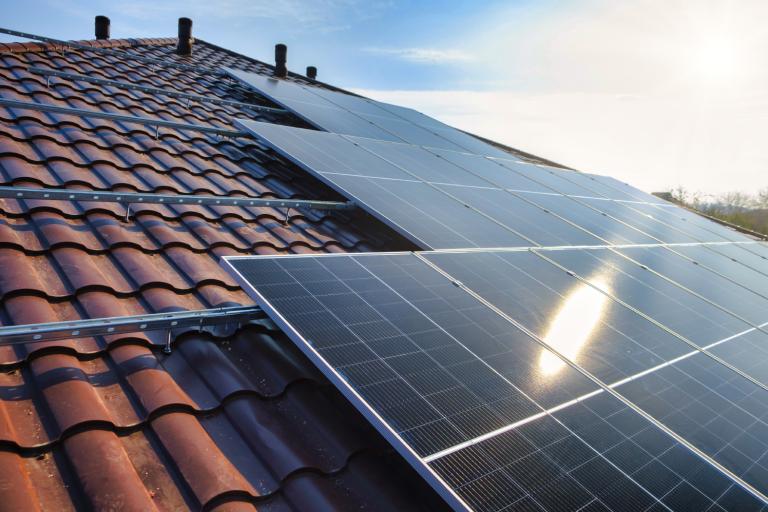We are improving our site by involving residents.
Help us continue to improve by giving your feedback
Solar photovoltaic (PV) panels convert sunlight into electricity, providing the following benefits:
They are typically installed on roofs, with unshaded south-facing roofs being ideal. East or west-facing roofs can also work, but will produce about 15–20% less energy.
Flat roofs may need angled mounting frames may be needed for better efficiency.
You may need to add a PV diverter, to direct excess electricity from your panels to heat your water, therefore reducing energy costs for hot water.
Ensure your roof is in good condition and strong enough to support the panels. Your installer will conduct your roof for suitability, and structural improvements may be needed before installation.
Disruption Level: Low

Solar thermal panels use sunlight to heat water stored in a cylinder. They use tubes filled with a water-glycol mix that transfers solar heat to the water cylinder.
While solar thermal systems do not meet all your hot water needs throughout the year, they do help raise the water’s base temperature. They do this by reducing the workload of your boiler or immersion heater.
South-facing roofs are best for solar thermal panels. They work with most conventional boilers and hot water cylinders.
If you have a home with combi-boiler you will need to install a separate hot water cylinder, so consider the amount of space you need.
Other considerations include ensuring your roof is in good condition and strong enough to support the panels. Your installer will assess the roof, and any necessary upgrades must be completed before installation.
The Centre for Sustainable Energy provides a solar water heating guide detailing how you can be energy efficient and save money.
The Energy Saving Trust also has useful information about solar thermal panels.
Relevant building regulations include:
Cost: £500
Disruption Level: Low
NEW Help improve this site by giving feedback Show Hide
Send feedback directly to the content team using our website feedback form
You can also join our user research group to receive invites to activities and surveys to help shape future improvements to the site.